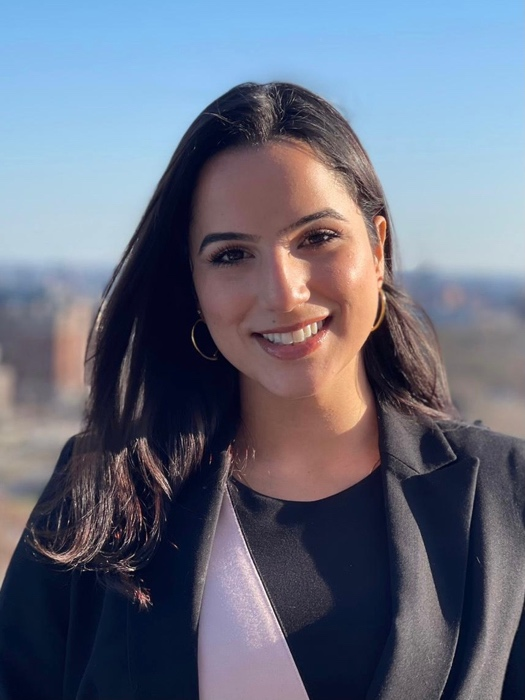 My name is Daniela M. Barata Herrera, and I am a recent graduate from the class of 2021 at Johns Hopkins University with a BS in Molecular and Cellular Biology. As a Cuban immigrant and lifelong dancer, I merged my passion for the arts and my culture by being captain of the only Latin dance team on campus, “Baila!”. I love performing my original afro Cuban choreographies with the team to share my culture with Hopkins and the Baltimore community. My devotion to the Latin community in Baltimore drove me to mentor local Latin high school students to help them through the college application process. Additionally, I work for Centro Sol, a Latin-based clinic affiliated with Johns Hopkins Medicine, where I work as a translator for community outreach programs regarding COVID vaccinations. Taking what I learned as an immigrant with a language barrier, I volunteer for Strong City Baltimore, where I tutor an ESL student once a week to improve English conversational skills. My interests in obesity and metabolism lead me to the Anderson Lab at the Johns Hopkins School of Medicine, where I studied the oxidative activation of Calmodulin Kinase II and its role in cardiac pathogenesis. Starting in August, I will begin work as a research fellow at the National Institutes of Health (NIH), studying the role of obesity and nutrition on molecular mechanisms of aging. I am beyond excited to form part of Generation Tomorrow: Baltimore HIV/AIDS Scholars, where I will gain the tools necessary to advocate for underserved populations in Baltimore. In the future, I hope to use my experiences as an immigrant Latina physician to make the most profound impact on those who suffer from institutional barriers to medical care. Following my research fellowship at the NIH, I seek to go to medical school and practice as a physician-scientist, where I will continue my research on nutrition and exercise and their influence in chronic illness. I seek to empower patients to take an active role in improving their health through lifestyle choices and provide the medical care that is often inaccessible to Latin and underserved populations.
My name is Daniela M. Barata Herrera, and I am a recent graduate from the class of 2021 at Johns Hopkins University with a BS in Molecular and Cellular Biology. As a Cuban immigrant and lifelong dancer, I merged my passion for the arts and my culture by being captain of the only Latin dance team on campus, “Baila!”. I love performing my original afro Cuban choreographies with the team to share my culture with Hopkins and the Baltimore community. My devotion to the Latin community in Baltimore drove me to mentor local Latin high school students to help them through the college application process. Additionally, I work for Centro Sol, a Latin-based clinic affiliated with Johns Hopkins Medicine, where I work as a translator for community outreach programs regarding COVID vaccinations. Taking what I learned as an immigrant with a language barrier, I volunteer for Strong City Baltimore, where I tutor an ESL student once a week to improve English conversational skills. My interests in obesity and metabolism lead me to the Anderson Lab at the Johns Hopkins School of Medicine, where I studied the oxidative activation of Calmodulin Kinase II and its role in cardiac pathogenesis. Starting in August, I will begin work as a research fellow at the National Institutes of Health (NIH), studying the role of obesity and nutrition on molecular mechanisms of aging. I am beyond excited to form part of Generation Tomorrow: Baltimore HIV/AIDS Scholars, where I will gain the tools necessary to advocate for underserved populations in Baltimore. In the future, I hope to use my experiences as an immigrant Latina physician to make the most profound impact on those who suffer from institutional barriers to medical care. Following my research fellowship at the NIH, I seek to go to medical school and practice as a physician-scientist, where I will continue my research on nutrition and exercise and their influence in chronic illness. I seek to empower patients to take an active role in improving their health through lifestyle choices and provide the medical care that is often inaccessible to Latin and underserved populations.
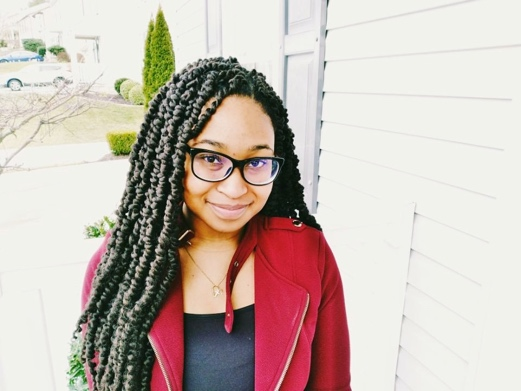 My name is Lisa Boyd. I am a rising sophomore at Johns Hopkins University majoring in Public Health with minors in Spanish and Entrepreneurship & Management. On campus, I am the secretary for Beta Mu Delta, a society dedicated to the support and advancement of black pre-med students. I am also the co-professional & academic development chair for Female Leaders of Color and a new head of family volunteer for an organization called Thread. As a black woman, I am very interested in the impact of historical damage on relationships that marginalized communities have with the medical field and how representation can be used to create more equitable healthcare. These interests fuel my excitement to one day enter the medical field as a pediatric hospitalist in an underserved community. In my free time I enjoy soccer, reading, playing the piano, cooking, and spending time outside. I am incredibly excited to participate in Generation Tomorrow: Baltimore HIV/AIDS Scholars and can’t wait to learn more about the ways that harm reduction and patient care are able to combat the effects of systemized health disparities.
My name is Lisa Boyd. I am a rising sophomore at Johns Hopkins University majoring in Public Health with minors in Spanish and Entrepreneurship & Management. On campus, I am the secretary for Beta Mu Delta, a society dedicated to the support and advancement of black pre-med students. I am also the co-professional & academic development chair for Female Leaders of Color and a new head of family volunteer for an organization called Thread. As a black woman, I am very interested in the impact of historical damage on relationships that marginalized communities have with the medical field and how representation can be used to create more equitable healthcare. These interests fuel my excitement to one day enter the medical field as a pediatric hospitalist in an underserved community. In my free time I enjoy soccer, reading, playing the piano, cooking, and spending time outside. I am incredibly excited to participate in Generation Tomorrow: Baltimore HIV/AIDS Scholars and can’t wait to learn more about the ways that harm reduction and patient care are able to combat the effects of systemized health disparities.
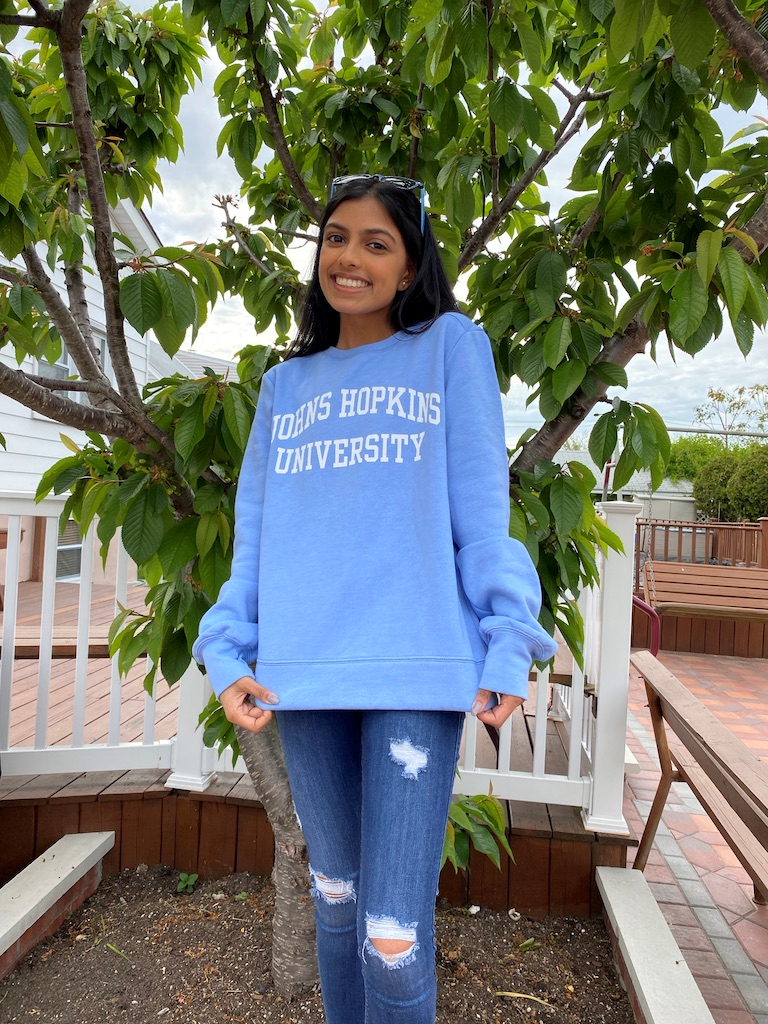 My name is Hannah Hardeo, and I am a rising sophomore majoring in Molecular/Cellular Biology at Johns Hopkins University. Being a first-generation student, I was always interested in events that provided opportunities for other students in similar situations, prompting me to be a member of the First Generation and Low-Income Organization on campus. At JHU, I am also a part of the Minority Association for Pre-Med students and Women’s Pre-Health Leadership Society, where we seek opportunities for females and underrepresented undergrads on the medical track. Outside of my time on a dance team and student government, I work with the JHU Wings Association as a service coordinator to create events that empower women and talk about female health. As a Guyanese female with the aspirations to become a physician, I am ecstatic to participate in Generation Tomorrow: Baltimore HIV/AIDS Scholars to gain an overarching view on HIV/HCV testing and prevention methods and I hope to apply the experiences and knowledge to reduce health disparities in certain communities in the future.
My name is Hannah Hardeo, and I am a rising sophomore majoring in Molecular/Cellular Biology at Johns Hopkins University. Being a first-generation student, I was always interested in events that provided opportunities for other students in similar situations, prompting me to be a member of the First Generation and Low-Income Organization on campus. At JHU, I am also a part of the Minority Association for Pre-Med students and Women’s Pre-Health Leadership Society, where we seek opportunities for females and underrepresented undergrads on the medical track. Outside of my time on a dance team and student government, I work with the JHU Wings Association as a service coordinator to create events that empower women and talk about female health. As a Guyanese female with the aspirations to become a physician, I am ecstatic to participate in Generation Tomorrow: Baltimore HIV/AIDS Scholars to gain an overarching view on HIV/HCV testing and prevention methods and I hope to apply the experiences and knowledge to reduce health disparities in certain communities in the future.
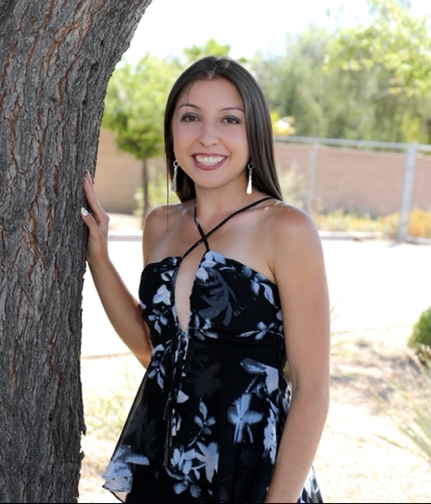 My name is Sarah Victoria Kanner, and I am a rising junior at Johns Hopkins University studying Chemical and Biomolecular Engineering and Spanish. Outside of classes, I enjoy working as a Differential Equations tutor and as a Teaching Assistant for Chemical and Biological Process Analysis. I also work as a Spanish-speaking advocate for Hopkins Community Connection (HCC). As an advocate, I assist Baltimore families in accessing essential resources such as housing, heat, electricity, and food. I have had the opportunity to deliver compassionate care to families who have personally experienced the health disparities within the Baltimore community. With the Generation Tomorrow: Baltimore HIV/AIDS Scholars, I hope to continue learning about healthcare inequalities so that I may better serve Baltimore families as an HCC advocate. I also hope to apply the knowledge I gain through this summer program to one day better serve as a physician.
My name is Sarah Victoria Kanner, and I am a rising junior at Johns Hopkins University studying Chemical and Biomolecular Engineering and Spanish. Outside of classes, I enjoy working as a Differential Equations tutor and as a Teaching Assistant for Chemical and Biological Process Analysis. I also work as a Spanish-speaking advocate for Hopkins Community Connection (HCC). As an advocate, I assist Baltimore families in accessing essential resources such as housing, heat, electricity, and food. I have had the opportunity to deliver compassionate care to families who have personally experienced the health disparities within the Baltimore community. With the Generation Tomorrow: Baltimore HIV/AIDS Scholars, I hope to continue learning about healthcare inequalities so that I may better serve Baltimore families as an HCC advocate. I also hope to apply the knowledge I gain through this summer program to one day better serve as a physician.
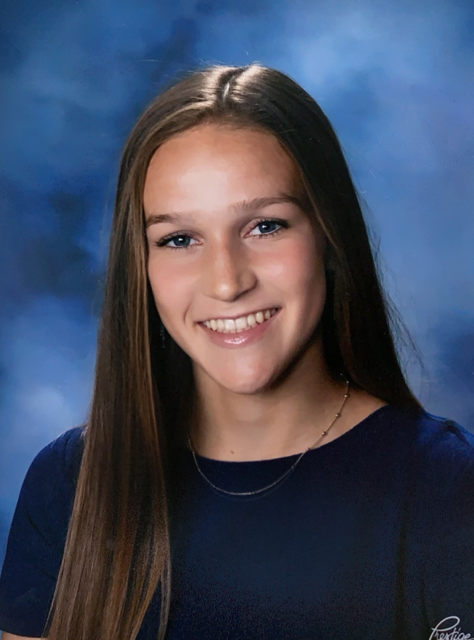 My name is Emilia Mannstadt and I am from Arlington, MA. I am currently a rising sophomore studying Public Health and German at Johns Hopkins University. Interning at the Bureau of Substance Abuse Services at the Massachusetts Department of Public Health, I learned key information about a variety of harmful substances, factors that lead people to struggle with substance use, programs designed to help people and communities fight substance use, and so much more. My experience with substance abuse services reinforced my concern about health disparities. Socially disadvantaged communities are more affected by bad health outcomes than others and I am interested in learning how to be part of the harm reduction. Working with HIV/HCV is particularly intriguing because it affects many people around the world despite the incredible scientific progress about the disease we have made. Interacting with those who suffer from HIV/AIDS and those who provide AIDS-related services throughout Baltimore is a great way to get involved in the community while also learning about the science of HIV. In my spare time, I like to travel, spend time with friends and family, and I am also a part of the women’s soccer team at JHU. I am extremely excited to be involved in this program that works to better the health of communities that are underrepresented and under supported, while also expressing my interest in the sciences.
My name is Emilia Mannstadt and I am from Arlington, MA. I am currently a rising sophomore studying Public Health and German at Johns Hopkins University. Interning at the Bureau of Substance Abuse Services at the Massachusetts Department of Public Health, I learned key information about a variety of harmful substances, factors that lead people to struggle with substance use, programs designed to help people and communities fight substance use, and so much more. My experience with substance abuse services reinforced my concern about health disparities. Socially disadvantaged communities are more affected by bad health outcomes than others and I am interested in learning how to be part of the harm reduction. Working with HIV/HCV is particularly intriguing because it affects many people around the world despite the incredible scientific progress about the disease we have made. Interacting with those who suffer from HIV/AIDS and those who provide AIDS-related services throughout Baltimore is a great way to get involved in the community while also learning about the science of HIV. In my spare time, I like to travel, spend time with friends and family, and I am also a part of the women’s soccer team at JHU. I am extremely excited to be involved in this program that works to better the health of communities that are underrepresented and under supported, while also expressing my interest in the sciences.
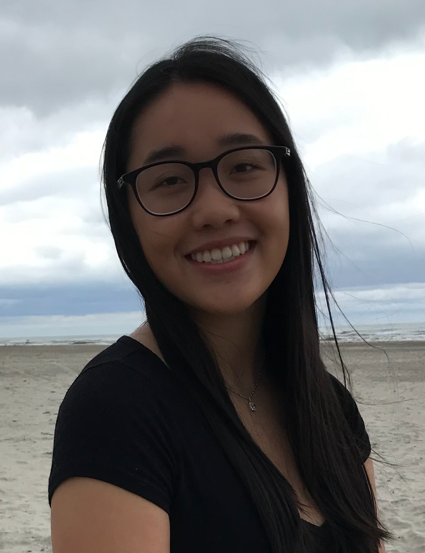 My name is Nina Nguyen, and I am a rising junior at Johns Hopkins University double majoring in Molecular and Cellular Biology, and Public Health. On campus, I am apart of MedLife, Taiwanese American Students’ Association, the secretary for Partners in Health, and a Research Assistant in a Cardiovascular Biochemistry Lab. Outside of school, I enjoy traveling, trying new food, and hanging out with my dog. Ultimately, I hope to become a physician and help reduce health disparities. I am eager to participate in Generation Tomorrow: Baltimore HIV/AIDS Scholars and gain valuable knowledge that will help me further my academic and professional career, as well as help underserved communities.
My name is Nina Nguyen, and I am a rising junior at Johns Hopkins University double majoring in Molecular and Cellular Biology, and Public Health. On campus, I am apart of MedLife, Taiwanese American Students’ Association, the secretary for Partners in Health, and a Research Assistant in a Cardiovascular Biochemistry Lab. Outside of school, I enjoy traveling, trying new food, and hanging out with my dog. Ultimately, I hope to become a physician and help reduce health disparities. I am eager to participate in Generation Tomorrow: Baltimore HIV/AIDS Scholars and gain valuable knowledge that will help me further my academic and professional career, as well as help underserved communities.
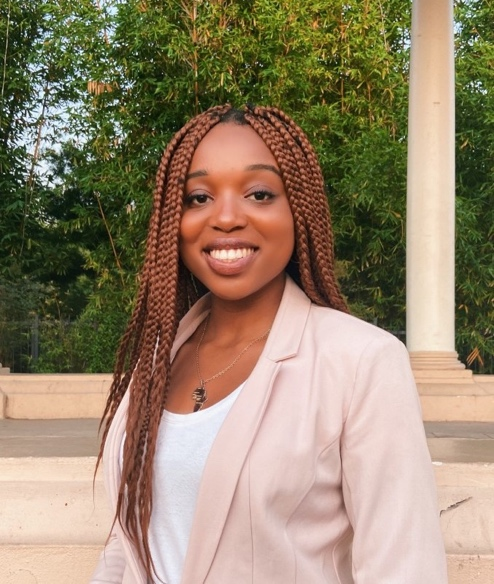 My name is Nene Okolo, and I am a rising Junior from San Diego, CA studying Public Health while on the Pre-Med track at Johns Hopkins University. I am passionate about eradicating health disparities and am currently part of a research team at the Johns Hopkins Center for Health Equity focusing on health disparities in hypertension care among ethnic minority, low income, and rural populations. My interest in equity spans to other areas of life and in June 2020, I founded the Instagram page @BlackinPUSD to bring awareness to racism in my community and advocate for racial equity and ethnic, antiracist curriculum in my former school district. I continue to pursue my passion for equity as an Advising Fellow in the Johns Hopkins chapter of Matriculate, a student-led organization that provides information and support to high-achieving, low-income high school students from underrepresented groups in preparation for college admissions. In the future, I hope to become a physician and continue advocating for public health issues that disproportionately affect marginalized communities. I am excited to join the 2021 Cohort of Generation Tomorrow: Baltimore HIV/AIDS Scholars and gain further insight on the inequities among HIV and HCV patients.
My name is Nene Okolo, and I am a rising Junior from San Diego, CA studying Public Health while on the Pre-Med track at Johns Hopkins University. I am passionate about eradicating health disparities and am currently part of a research team at the Johns Hopkins Center for Health Equity focusing on health disparities in hypertension care among ethnic minority, low income, and rural populations. My interest in equity spans to other areas of life and in June 2020, I founded the Instagram page @BlackinPUSD to bring awareness to racism in my community and advocate for racial equity and ethnic, antiracist curriculum in my former school district. I continue to pursue my passion for equity as an Advising Fellow in the Johns Hopkins chapter of Matriculate, a student-led organization that provides information and support to high-achieving, low-income high school students from underrepresented groups in preparation for college admissions. In the future, I hope to become a physician and continue advocating for public health issues that disproportionately affect marginalized communities. I am excited to join the 2021 Cohort of Generation Tomorrow: Baltimore HIV/AIDS Scholars and gain further insight on the inequities among HIV and HCV patients.
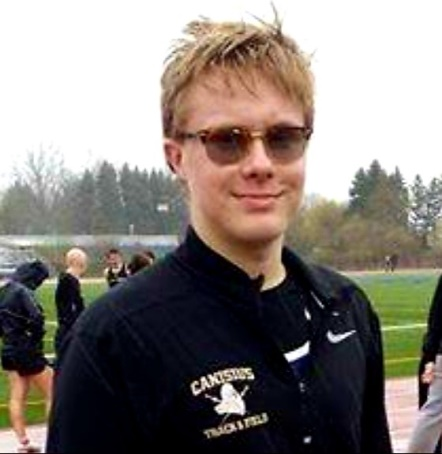 My name is Aleksander Zablotski. I am a rising sophomore at Johns Hopkins majoring in Chemistry and minoring in Biology. I am also a member of the FLI Network at Johns Hopkins through which I connect with community members with a shared identity. During childhood, I suffered a traumatic injury that left me with a disability. I know well what it is to be disadvantaged in life, and I know well what it takes to triumph against adversity. Due to my life experience, I’m compelled to aid and protect the powerless and vulnerable. In the underserved communities of my hometown of Buffalo, New York, I’ve served hot food to the poor and homeless, I’ve taught disabled children to swim and bike, and I’ve distributed supplies to teachers and schools. Also in my hometown, I’ve been a Summer Scholar at the Hauptman-Woodward Medical Research Institute, and this opportunity has opened a new world to me. Ultimately, I hope to become an academic physician and use my education and experience to reduce the health disparities among, and influence the health outcomes of, the powerless and vulnerable. As to my other life endeavors, I’ve been a competitive swimmer for more than a decade, and although I’m a speed rather than a distance swimmer, I aim to swim the English Channel one day, and if fortune is with me, I hope to do so in record time. When I race against the clock, when I recapture the second in which I was injured, I’m restored to the person I was the moment before my injury. I’m honored to have the opportunity to participate in Generation Tomorrow: Baltimore HIV/AIDS Scholars at Johns Hopkins School of Medicine and to gain insight into the systemic factors that create the health disparities among, and influence the health outcomes of, marginalized people in underserved communities.
My name is Aleksander Zablotski. I am a rising sophomore at Johns Hopkins majoring in Chemistry and minoring in Biology. I am also a member of the FLI Network at Johns Hopkins through which I connect with community members with a shared identity. During childhood, I suffered a traumatic injury that left me with a disability. I know well what it is to be disadvantaged in life, and I know well what it takes to triumph against adversity. Due to my life experience, I’m compelled to aid and protect the powerless and vulnerable. In the underserved communities of my hometown of Buffalo, New York, I’ve served hot food to the poor and homeless, I’ve taught disabled children to swim and bike, and I’ve distributed supplies to teachers and schools. Also in my hometown, I’ve been a Summer Scholar at the Hauptman-Woodward Medical Research Institute, and this opportunity has opened a new world to me. Ultimately, I hope to become an academic physician and use my education and experience to reduce the health disparities among, and influence the health outcomes of, the powerless and vulnerable. As to my other life endeavors, I’ve been a competitive swimmer for more than a decade, and although I’m a speed rather than a distance swimmer, I aim to swim the English Channel one day, and if fortune is with me, I hope to do so in record time. When I race against the clock, when I recapture the second in which I was injured, I’m restored to the person I was the moment before my injury. I’m honored to have the opportunity to participate in Generation Tomorrow: Baltimore HIV/AIDS Scholars at Johns Hopkins School of Medicine and to gain insight into the systemic factors that create the health disparities among, and influence the health outcomes of, marginalized people in underserved communities.